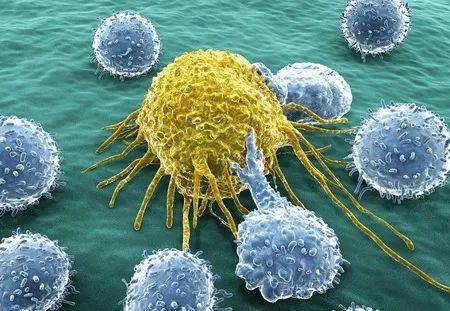▎ WuXi AppTec content team editor
According to the American Cancer Society, ovarian cancer has become the fifth largest type of cancer death for women, and most of these ovarian cancers are classified as high-grade serous ovarian cancers (HGSOC). This type of cancer is usually very deadly, and the key reason for this is that it is easily resistant to chemotherapy.
Some scientists are considering using immunotherapy to overcome drug resistance. Immunotherapy usually targets immune checkpoint-related proteins, which release the "brakes" of the immune system and allow immune cells to begin attacking cancer cells. But for now, progress in immunotherapy in HGSOC is still slow, and finding the problem has become a prerequisite for saving more HGSOC patients.

Image credit: 123RF
According to a new study in the Proceedings of the National Academy of Sciences (PNAS), if you want immunotherapy to really work, you need to solve the protective environment that cancer cells create for themselves. The study found that tumors make a signaling protein called "adhesive plaque kinase" (FAK for short), which regulates the expression of the CD155 protein.
It just so happens that CD155 itself can bind to TIGIT, a checkpoint receptor on immune cells, and tumors indirectly control the activation state of immune cells through CD155. This is one way for tumors to create a safe environment to evade immune system detection: the higher they raise CD155 levels, the lower the immune cell activity and the safer they are.
▲ Inhibition of FAK and reduction of CD155 levels are prerequisites for improving the efficiency of immunotherapy (Image source: References [2], credit: UC San Diego Health Sciences)
In animal models, the researchers tried to get mice with ovarian cancer to take anti-FAK drugs, after which levels of the CD155 protein in the mice began to decline. At this time, after the addition of TIGIT inhibitors, the combination of the two drugs can significantly enhance the immune activity of ovarian cancer cells in mice.
Compared with the control, the mice taking the two drugs had significantly smaller tumor sizes and higher survival rates. Dr David D. Schlaepfer, corresponding author of the study, said: "There are already a number of companies testing FAK inhibitors, while TIGIT inhibitors are already in clinical trials, and high levels of CD155 and FAK are common in ovarian cancer. "The combination of the two inhibitors may be expected to become a new ovarian cancer therapy that will save more patients."
Resources:
[1] Tumor FAK orchestrates immunosuppression in ovarian cancer via the CD155/TIGIT axis, Proceedings of the National Academy of Sciences (2022). DOI: 10.1073/pnas.2117065119.
[2] How ovarian cancer defies immunotherapy. Retrieved Apr 12th, 2022 from https://medicalxpress.com/news/2022-04-ovarian-cancer-defies-immunotherapy.html
More recommendations
Click "Watching" and go again